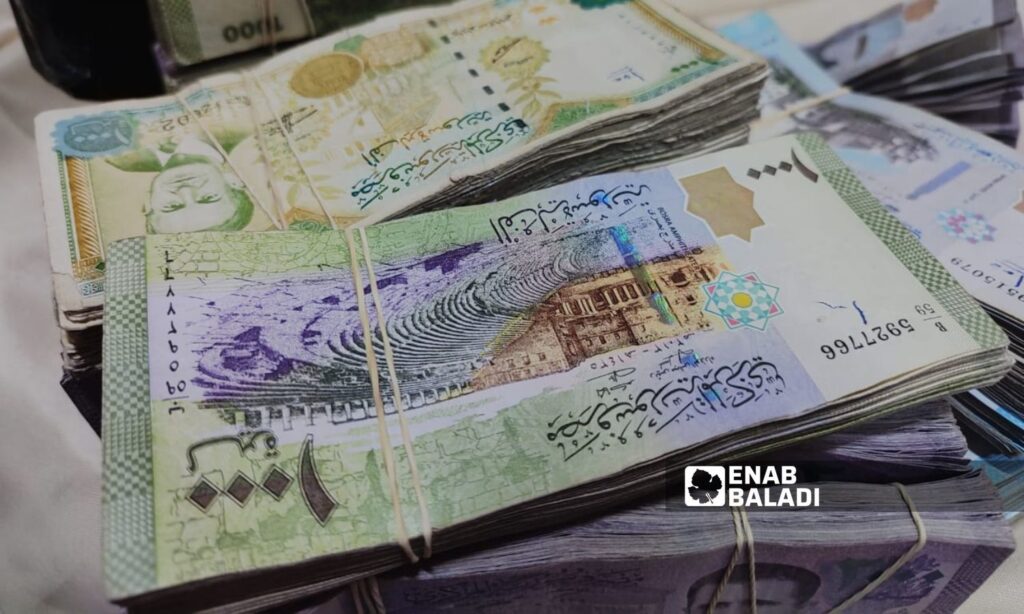The Central Bank of Syria (CBS) announced today, Monday, January 29, the resumption of work in domestic remittance companies according to a cap set at five million Syrian pounds per person.
The CBS stated that the resumption came after reorganizing the liquidity movements of internal remittance companies (Al-Haram and Al-Fouad).
The selling price of one US dollar against the Syrian pound recorded 14,775 pounds according to the S-P Today website, which specializes in currency exchange rates.
Citizens said that the daily transfer cap has returned to five million Syrian pounds per day, after ten days of reducing the daily remittance cap to one million pounds, then reducing it two days ago to one million pounds per week only.
Iyad (47 years old), who works in the private sector, said that he was at one of the Al-Haram remittance company branches in Latakia city, preparing to transfer amounts to Damascus amounting to three million pounds, using two of his friends to send it, before an Al-Haram employee informed him that they received a decision this morning that things are back to as they were before the decision, and that the transfer cap has become five million pounds per day.
The reduction in the daily remittance caps among accredited exchange companies in Syria has created difficulties, especially with respect to commercial businesses, and the continuous need to transfer money in high amounts due to inflation, as the amount of one million pounds is equivalent to about 68 US dollars.
Abed Fadilah, a professor at the Faculty of Economics at Damascus University, said that the decision to reduce the cap on internal transfers was temporary to curb inflation, so that the available monetary mass in the hands of people is not higher than the commodity mass.
He noted that there is an exaggeration in this regard, which will lead to the obstruction of commercial business between provinces.
If the decision continued, it would have eventually led to reliance on bank transfers, as the transfer cap in banks remained the same, an option that the director of the government and bank commission at the Central Bank, Ismat Yousef, called to resort to.
Among the difficulties of transferring money in Syria is the condition imposed by some companies that all money should be in the denomination of 2000 and 5000 Syrian pounds.
Because of this, those who want to transfer money often resort to exchanging currencies into the required denominations through exchange offices and paying a commission for this service.
The President of the Syrian regime, Bashar al-Assad, issued a decree on January 20, stating that unlicensed exchange and transferring currencies between Syria and abroad without a license will be punished with imprisonment from 5 to 15 years, and a fine that could be three times the value of the seized amounts, and it is not permissible to release the individuals involved in these “crimes”.

